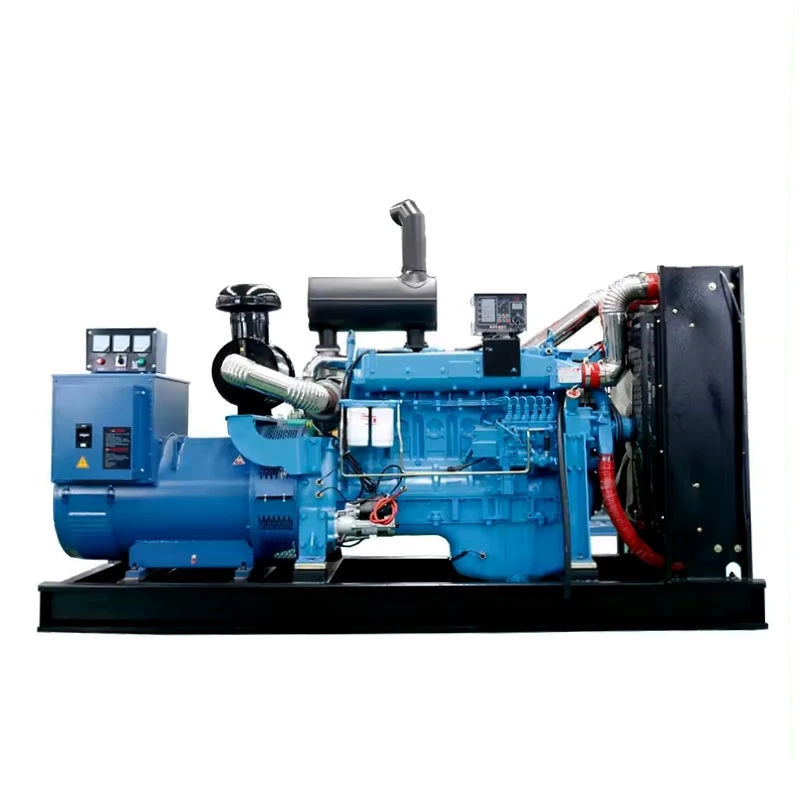Introduction
Altitude testing is a critical process in various industries, including aviation, automotive, and defense, to ensure the reliability and performance of equipment and machinery at different elevations. The ability to simulate high-altitude conditions is essential for testing the functionality of products under extreme environments. Pros and cons of owning a 400kW generator play a crucial role in providing the necessary power for altitude testing, offering several advantages over other power sources. In this article, we will explore the benefits of using diesel generators for altitude testing and how they contribute to the success of testing procedures.
1. Reliable Power Supply
One of the primary advantages of using diesel generators for altitude testing is their reliable power supply. Altitude testing requires a continuous and stable power source to simulate different elevations accurately. Diesel generators are known for their robust performance and can provide consistent power output even in challenging conditions. This reliability ensures that the testing process proceeds smoothly without any interruptions due to power failures or fluctuations.

2. High Power Output
Diesel generators are capable of delivering high power output, making them ideal for altitude testing applications that require a significant amount of energy. Altitude testing often involves running multiple test setups simultaneously, which can put a strain on the power supply. Diesel generators can easily handle the increased power demand, ensuring that all testing equipment receives an adequate power supply for accurate and reliable results.
3. Fuel Efficiency
Another key advantage of diesel generators for altitude testing is their fuel efficiency. Diesel engines are known for their high thermal efficiency, which means they can convert a greater percentage of fuel into usable energy compared to other types of engines. This fuel efficiency not only reduces operating costs but also ensures a consistent power supply throughout the testing process. In addition, diesel fuel is widely available and relatively inexpensive, making diesel generators a cost-effective choice for altitude testing applications.
4. Durability and Longevity
Diesel generators are built to be durable and long-lasting, making them suitable for the demanding conditions of altitude testing. The robust construction of diesel engines allows them to withstand extreme temperatures, high altitudes, and harsh environments without compromising performance. This durability ensures that diesel generators can operate reliably for extended periods, minimizing downtime and maintenance requirements during testing procedures.
5. Portability and Versatility
Diesel generators are highly portable and versatile, allowing them to be easily transported to different testing locations and setups. This flexibility is essential for altitude testing, where equipment may need to be moved to simulate various elevations and conditions. Diesel generators come in a range of sizes and configurations, making it easy to find a model that suits the specific requirements of the testing application. Their portability and versatility make diesel generators a practical choice for altitude testing in remote or challenging environments.
6. Low Emissions
Despite being powered by diesel fuel, modern diesel generators are designed to be environmentally friendly and produce low emissions. Advanced emissions control technologies, such as catalytic converters and particulate filters, help reduce harmful pollutants and ensure compliance with stringent environmental regulations. This low-emission profile makes diesel generators a sustainable choice for altitude testing, minimizing the impact on the surrounding environment while providing the necessary power for testing operations.
7. Remote Monitoring and Control
Many diesel generators are equipped with advanced monitoring and control systems that allow remote operation and real-time performance tracking. This functionality is particularly beneficial for altitude testing, where equipment may be located in remote or inaccessible locations. Remote monitoring enables operators to keep track of the generator's status, performance, and fuel consumption from a centralized control center, ensuring optimal operation and maintenance throughout the testing process.
8. Backup Power Capability
In addition to serving as the primary power source for altitude testing, diesel generators can also function as reliable backup power systems in case of emergencies or power outages. Their ability to provide backup power ensures continuity of testing operations and prevents data loss or equipment damage due to unexpected power failures. Diesel generators can be configured with automatic transfer switches to seamlessly transition to backup power mode when needed, providing an added layer of reliability and security during altitude testing procedures.
Conclusion
Diesel generators offer a wide range of advantages for altitude testing applications, including reliable power supply, high power output, fuel efficiency, durability, portability, low emissions, remote monitoring, and backup power capability. Their robust performance, versatility, and cost-effectiveness make diesel generators an ideal choice for simulating high-altitude conditions in various industries. By leveraging the benefits of diesel generators, organizations can ensure accurate and reliable altitude testing results, leading to the development of safer, more efficient, and more reliable products and equipment.
